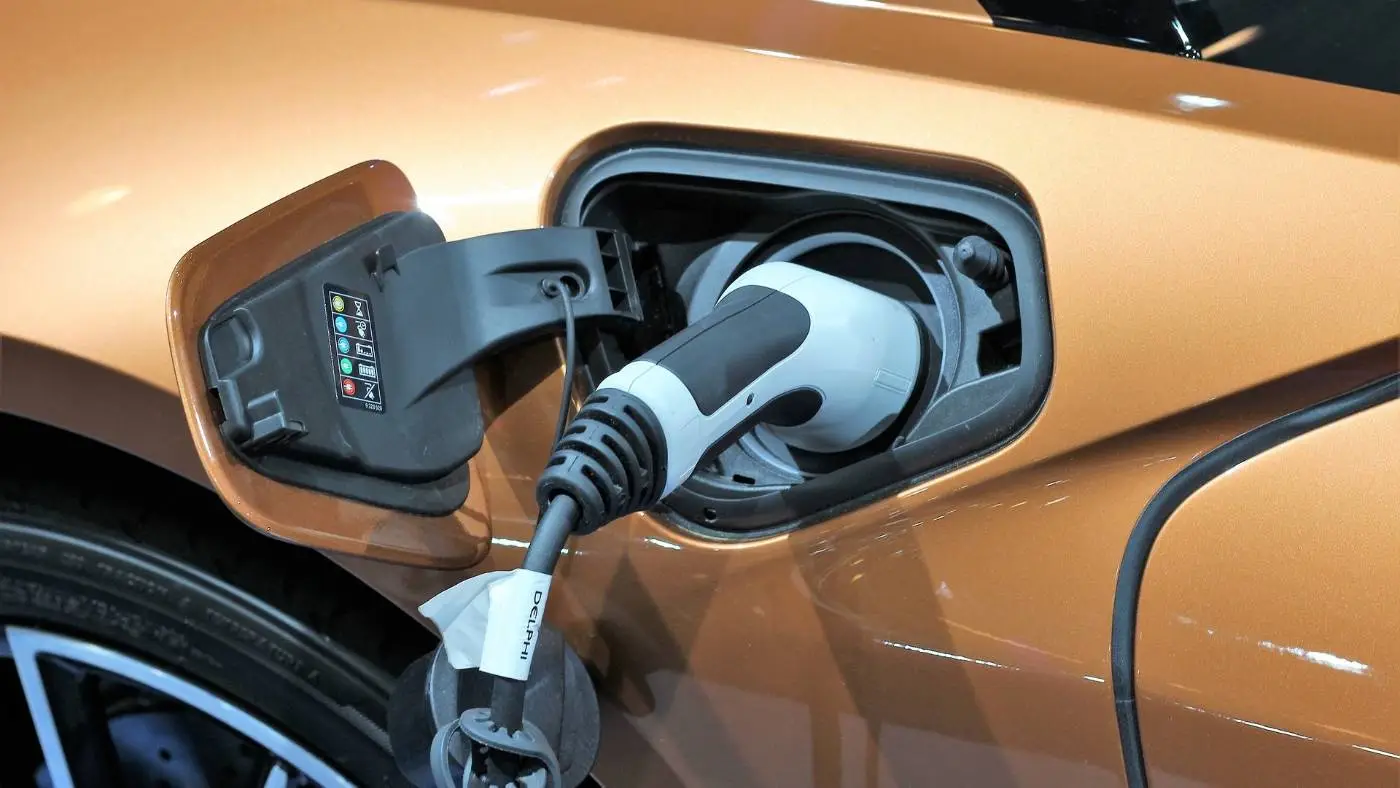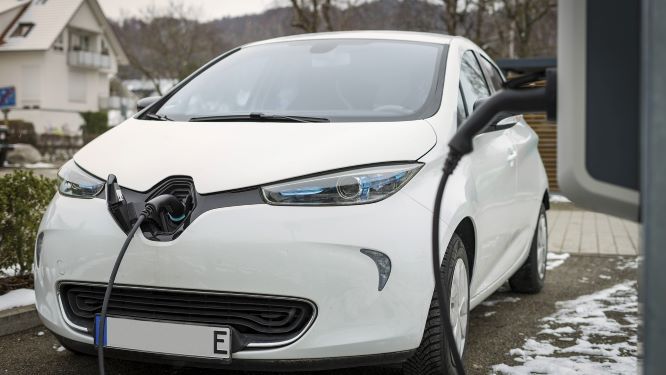- Why do I need to install an electric car charger in my garage or driveway?
- Why can’t I use a standard plug socket?
- Can I get an OZEV (OLEV) grant to cover the cost of an EV charging point?
- What is the best EV charger to buy?
- How much does an electric vehicle charging point cost?
- EV Charger Installation cost in the UK
Why do I need to install an electric car charger in my garage or driveway?
In less than 10 years the UK will be banning the sale of petrol fueled cars and we will have to turn to zero or low carbon emission alternatives such as electric, electric hybrid or hydrogen power. Hydrogen power is not really in the game yet so it looks like electric power will be the power of choice, initially at least. Having an EV charging point at your home will be more convenient than using a charging station, they are also getting smarter with your electricity bills, so they will also be cheaper too. Car manufacturers are investing heavily in electric power and charging stations are popping up everywhere and there are government incentives for you to both buy an electric vehicle and install an EV charging point on your driveway or in the garage.


Why can’t I use a standard plug socket?
Uk plug sockets are not really designed for heavy power loads over night and an electric charger point is 50% quicker and possibly more. So if you do own or are thinking about owning an electric vehicle, a charging point is a no brainer to homeowners with a driveway or garage. Added to that are the risks of fire if your old wiring is not up to the task, so the cost of getting an electric charging point will seem like money well spent compared to your house burning down.
Can I get an OZEV (OLEV) grant to cover the cost of an EV charging point?
If you are thinking about buying or leasing an electric vehicle and you want the government's Office for Zero Emission Vehicles (OZEV) to cover up to 75% of the EV charger installation costs, then you had better hurry up! The OZEV EVHS (Electric Vehicle Homeowners Scheme) grant scheme is only available to homeowners until April 2023. After that you will have to foot the bill yourself. The maximum grant you can receive is £350 which is not going to cover the cost of a 7kW unit fitted by an OZEV authorised electrician, but it helps.
Anyway, in 5 years time, any household without a charging point will seem a bit dated. So even if you have to pay for an electrician to fit a charger yourself and you miss the cut off date for the grant, just think how much more convenient it is to charge the car on your driveway than at a charging station.
Finding an OZEV installer is easy, just use HaMuch to get a quote from electricians in your area. Expect to pay between £200 and £400 depending on the complexity of the installation and the area you live in.

What is the best EV charger to buy?
There are a few options out there on the best EV chargers for you depending on your circumstances. It is a situation that is going to evolve and the cheapest option starts with a 3.6kW unit (around 6-8 hours to fully charge) but that might not be your best or most cost effective solution. 7kW gives you a faster charge of around 2-4 hours, but 22kW charging is the future. Unfortunately not all cars are equipped for 22kW charging so make sure your car is set up before you install. 3 phase chargers can charge at different loads but tend to be more expensive. Single phase solutions are the cheaper option and can charge at 7kW.
You can either get your charger tethered (with the cable attached) or untethered. This is a personal choice and depends on what is more convenient for you. There are two types of cable, type 1 and type 2 and car manufacturers switch between the two depending on the modal and the battery capacity. Best to check which type your vehicle is before making any purchase, although there are converters available if you need to swap.
Type 1 Charger
- Audi A3 e-tron
- Citroen
- Ford
- Mitsubishi
- KIA
- Nissan Leaf (2012-2017)
- Peugeot
- Renault Zoe
- Toyota Prius
- Vauxhall
Type 2 Charger
- Audi
- BMW
- Hyundai
- Jaguar
- KIA
- Ranger Rover
- Renault
- Mercedes Benz
- Mini
- Nissan Leaf 2018
- Porsche
- Smart
- Tesla
- Toyota
- Volkswagen
- Volvo
Smart Chargers
Smart charging using an app and wifi connection will allow you to hook up to the grid when tariffs are low and also connect to your solar panel installations. The Government is keen on smart chargers for this reason and to get the grant you will need an OZEV certified charger and an OZEV installer to fit it. The smart charger manufacturers list is growing and they include companies like Zappi, Juicebox, Ohme, Wallbox, Pod point and Anderson. This is where there will be growth as the market matures and the cost of the charger can be offset by how clever it is in reducing your electricity bill by intelligently charging your car.
How much does an electric vehicle charging point cost?
If you can get the OZEV grant you can get a smart charger fitted for under £1000 depending on the manufacturer. The installation fee will probably cost between £200 - £400 depending on the power rating and complexity of the installation and the units can be picked up from around £500.
| Manufacturer | Power Rating | Price* |
|---|---|---|
| Andersen A2 3 Phase EV Charger | 3.6kW / 7kW / 22Kw | £1,135.00 |
| Zappi V2 3 Phase Type 2 Tethered EV Charger | 3.6kW / 7kW / 22Kw | £790.00 |
| Hypervolt Home 2.0 EV Charger | 7.0 kW | £679.00 |
| Pod Point Mode 3 Type 2 Tethered Solo Smart EV Charger | 7.0 kW | £650.00 |
| Ohme EV Wall Charger Mode 3 Tethered | 7.2kW | £607.50 |
| Schneider EVLink Wallbox Tethered | 7.4kW | £599.50 |
| Project EV Electric Vehicle Charger | 7.3kW | £375.56 |
So, if you are on a budget, you can buy a Project EV charger for £375.56 and if you manage to find an OZEV authorised electrician to fit a standard installation for £250 then you will pay around £625. Then with the government grant of £350 you could pay as little as £275 in total and have a smart charger with a 7.3kW power rating.
Smart charging not only allows you to connect and monitor your charging vehicle with a phone app, but can also be used to charge at low tariff times so you save on your electricity bill. The major difference between a home and public charger is the time it takes to charge your vehicle and the cost. Home charging currently costs half the price of charging using a public charger but takes probably 3 times as long to achieve full charge. In the future this may change but for now you can fully charge your vehicle for as little as £3 for a small vehicle with a 32kW battery.